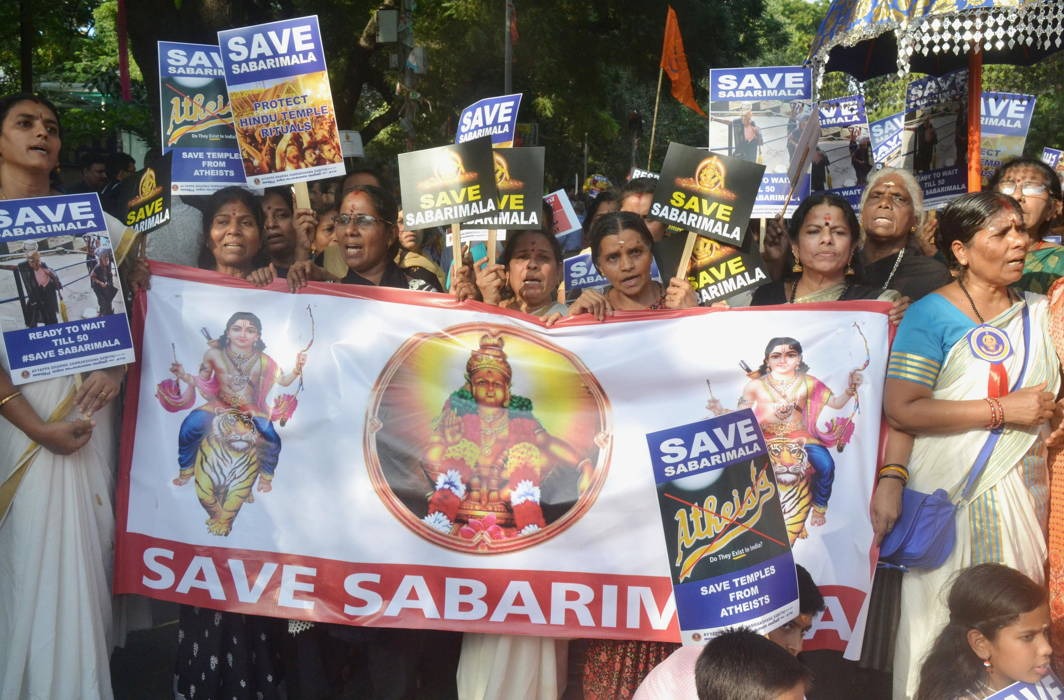The Supreme Court’s nine-judge bench is posed with seven questions referred on November 14, 2019 by a 3:2 majority judgment in a batch of review pleas clubbed under Kantaru Rajeevaru Vs Indian Young Lawyers Association. The majority judgment, penned by the then CJI Ranjan Gogoi listed the following questions:
(i) Regarding the interplay between the freedom of religion under Articles 25 and 26 of the Constitution and other provisions in Part III, particularly Article 14.
(ii) What is the sweep of expression ‘public order, morality and health’ occurring in Article 25(1) of the Constitution?
(iii) The expression ‘morality’ or ‘constitutional morality’ has not been defined in the Constitution. Is it overarching morality in reference to preamble or limited to religious beliefs or faith. There is need to delineate the contours of that expression, lest it becomes subjective.
(iv) The extent to which the court can enquire into the issue of a particular practice is an integral part of the religion or religious practice of a particular religious denomination or should that be left exclusively to be determined by the head of the section of the religious group.
(v) What is the meaning of the expression ‘sections of Hindus’ appearing in Article 25(2)(b) of the Constitution?
(vi) Whether the “essential religious practices” of a religious denomination, or even a section thereof are afforded constitutional protection under Article 26.
(vii) What would be the permissible extent of judicial recognition to PILs in matters calling into question religious practices of a denomination or a section thereof at the instance of persons who do not belong to such religious denomination?
The judgment, of which Justices A.M. Khanwilkar and Indu Malhotra were also part, brings out an apparent conflict in a seven-judge bench judgment of the Apex Court in Shirur Mutt case which is why, the present reference is before a nine-judge bench, to determine if the Shirur Mutt case was wrongly decided.
Justices R.F. Nariman and D.Y. Chandrachud while dissenting from the majority opinion, went on to add more questions which are pending before the Court which rely on the balance of the Sabarimala verdict of September 2018. They are:
- entry of Muslim women in a dargah/mosque;
- Parsi women married to non-Parsis and their entry into a fire temple;
- female genital mutilation in the Dawoodi Bohra community,
- the applicability of Kerala Hindu Places of Public Worship (Authorization of Entry) Rules, 1965.
— India Legal Bureau


